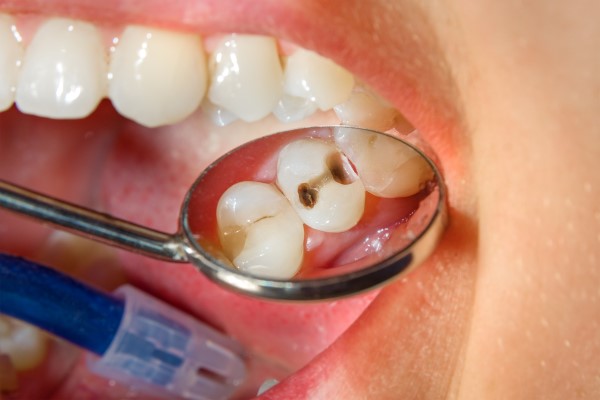Dentists in Nebraska see people of all ages with cavities, which are also called dental caries or tooth decay. When the enamel on your teeth wears away, holes start to form on the hard surface. Cavities can hurt, spread, and even kill your teeth if you do not fix them.
Cavities happen a lot, but the good news is that you can avoid most of them by taking care of your teeth and seeing a professional for General dentistry in Omaha regularly. This article talks about cavities, including what causes them, how to detect them, and the different ways to treat them.
Understanding tooth decay and how cavities form
When plaque, a sticky film of bacteria, builds up on the surface of your teeth, tooth loss starts to happen over time. These bacteria eat sugars in food and drinks and make acids as a waste product. Plaque acids wear away tooth enamel over time, leaving tiny holes or cavities.
There are a number of things that can make you more likely to get cavities:
-
Snacking often
Plaque bacteria have more chances to attack your teeth with acid when you drink sugary drinks or snacks throughout the day.
-
Bad oral health
Flossing once a day and brushing your teeth twice a day with fluoride toothpaste get rid of plaque and food bits that cause cavities.
-
Dry mouth
Saliva is very important for getting rid of food bits and reducing the acids that plaque bacteria make. Things that make your mouth dry, like some medicines or medical conditions, can raise your risk of cavities.
-
Some drinks and foods
Too many sugary or starchy foods and drinks can make you much more likely to get cavities.
How do you tell if you have cavities in your teeth?
A lot of the time, early cavities do not show any signs. That being said, as the hole gets bigger, you may:
- Toothache, especially after eating or drinking something hot, cold, or sweet
- pain or sensitivity in a certain tooth
- Teeth with holes or pits that you can see
- Stains on the outside of the teeth that are brown, black, or white
- Feeling pain when you bite down
To find cavities early, it is important to get regular dental checks. Your dentist will look at your teeth visually and may use X-rays to find cavities between teeth or below the enamel’s surface during a checkup.
Treatments that work well for cavities

How you fix a hole depends on how bad the situation is. Topical fluoride treatments are a common way to improve tooth enamel and keep cavities from getting worse. Dentists use filler material that matches the color of the tooth to fill in small to large holes.
If you have a big cavity or a lot of damage, you might need a crown. Root canal treatment is needed when the decay gets deep into the pulp. To save the tooth, the infected tissue must be removed. If a tooth is badly broken or damaged and can not be fixed, it might have to be taken out.
Preventative steps to protect your smile
Use fluoride toothpaste, brush twice a day, floss every day, limit sugary snacks and drinks, drink a lot of water, and chew sugar-free xylitol gum to keep your mouth healthy and avoid cavities. Getting regular dental checkups can help find and treat cavities early, which keeps teeth from getting worse.
Limiting the amount of sugary drinks and snacks you eat and brushing your teeth right away after eating or drinking can also help you keep your teeth clean. Going to the dentist regularly can also help keep teeth from getting worse. Generally, taking care of your teeth is very important for your general oral health.
Following these precautions and keeping good oral care habits can greatly lower your chance of getting cavities and keep your smile healthy for many years to come.

